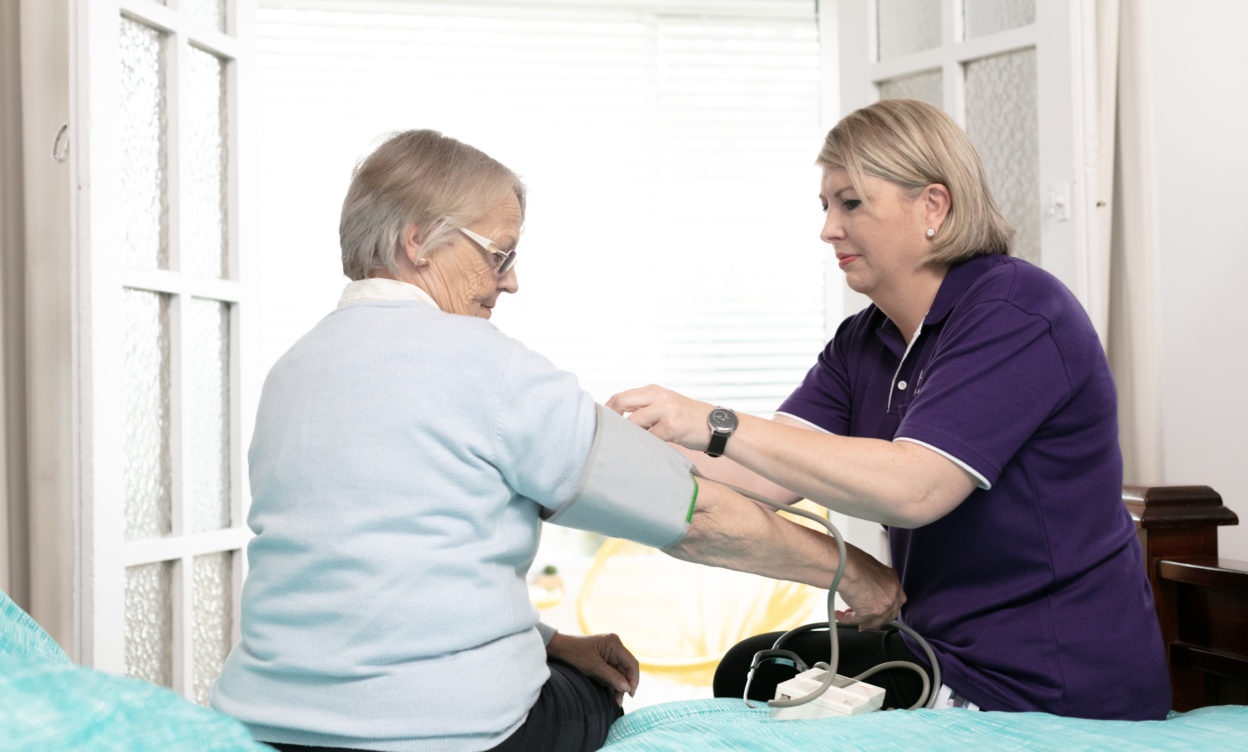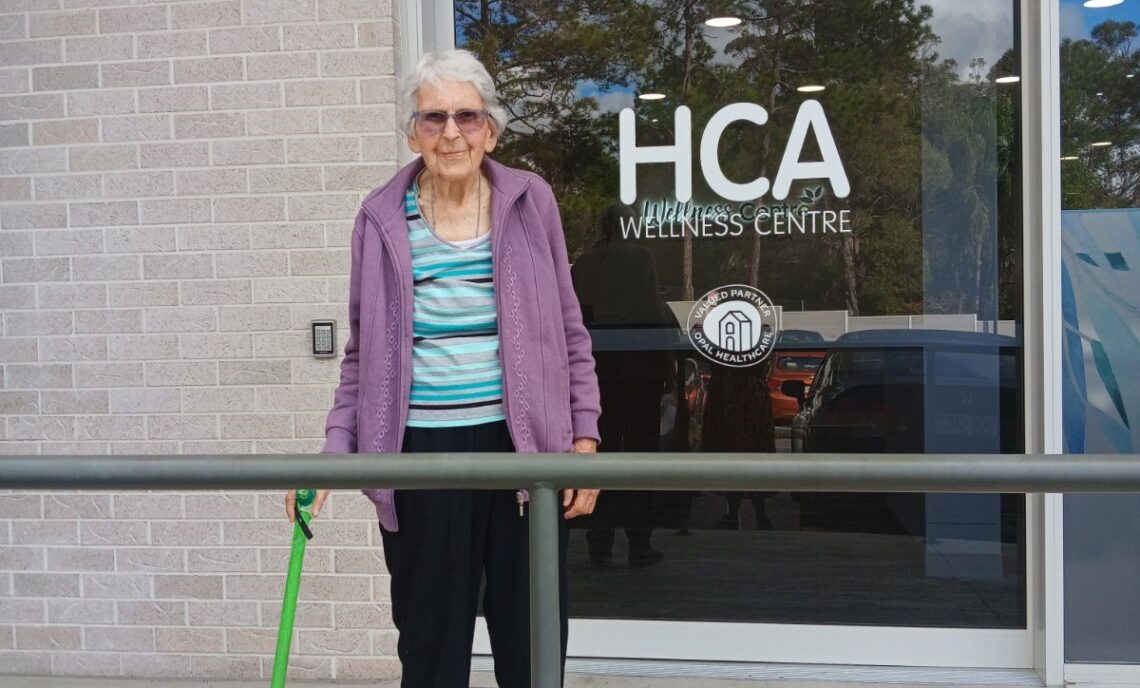
10 Tips Aged Care Agency Nurses Wished They’d Known Sooner
By Emma Smith, ED/Critical Care Nurse and author of the blog ‘The Other Shift’ I
The ‘Other Shift’ is about creating a place for shift workers like Emma who might be battling sleep fatigue, struggling to exercise and stay healthy or finding the right balance between ‘you time’ and managing your relationships.
You know the feeling of finishing an agency shift at an aged care facility and debriefing to yourself on the drive home, thinking, Gosh, I wish I had known that before I started.
I’ve had the privilege of working as a PCA, Div. 2 and RN supervisor of a large aged care facility and understanding the feeling of not knowing a single soul or where to go. I know how you feel being handed a piece of paper with what seems like, too many names all to be attended to within 4 hours and not even knowing where the linen is kept.

How you feel during your shift can impact the care you provide. So, from one agency nurse to another, here are my 10 tips for agency nurses and care staff working in aged care, that you wish you knew sooner.
-
Table of Contents
Arrive early for your shift and give yourself a tour
Feeling stressed about going to a new facility is totally normal but by showing up early you’re giving yourself a chance to ease into it. With the extra few minutes, ensure you have temporary access to the computer system and even get a brief rundown by reception (if present) on how to use it. Take a walk through the facility yourself and see what you can e.g the bathrooms, linen cupboard, staff room, drug cupboard etc. Being proactive here can save an incredible amount of time later on.
-
Be proud and introduce yourself
It can be intimidating going into a new place where everyone knows everyone ‚ except you. Be proud, smile, take initiative and introduce yourself to everyone in the room. Be honest in saying you haven’t been there before. Even if you’re scared, appearing positive says to people you’re happy to be there and want to work as a team. Don’t forget to put on your name band, have your equipment on and don’t forget a pen. You’re all on the same team so don’t give them a reason to leave you out.
-
Knowing the codes
I can’t tell you how many times I was locked out of the staff room, bathroom, drug room and even the linen cupboard because I didn’t know the codes. Talk about a time waster! Write these down before the shift starts. Alternatively, carry the keys safely in your pocket or around your neck to prevent yourself getting locked out.
-
Know your role
Are you only required to shower or wash your resident, make their bed, brush their teeth, comb their hair and assist with dressing? Or are you required to empty the bins, take out the dirty laundry, help feed in the dining room and listen to the doctor’s rounds?
If you don’t ask, it’s likely nobody will tell you until it’s too late. If your role does get changed, like moving to another section of the facility, don’t fret. Introduce yourself again, obtain a brief handover and get going. You’ve got this.
-
Work out who needs priority care first
In order to plan your shifts, during handover, be resourceful by reviewing (if available) each resident file to see who likes to be attended to first and who likes asleep in. While looking at the files, check to see who needs a wash or shower and who’s a two-person assist. If you can’t find the information, don’t be afraid to ask for help.
Quick tip, immediately after handover, attends to a resident who is a two-person assist first, as there will be staff around to help. While you’re in the room with them, it’s a great time to ask about where extra bin/trash liners, toiletries and denture cleaner are kept.
-
ALWAYS carry a phone or pager
It’s awkward standing in a resident’s room with the standing sling already in place, wearing your gloves just waiting for help to arrive.
Help yourself and the residents by being able to communicate with the right person, quickly. It doesn’t matter if it’s a phone, pager or another communication tool, make sure your device is charged and ready to go. If not, work out a way to meet regularly with your team leader and voice any concerns. Time is precious, so don’t assume you’re not going to have questions or need help… because you will and it’s okay.
-
Write down the Activities of Daily Living (ADLS) as you go.
Did I give them a shower or wash? Did I change their sheets or not?
Guessing games are dangerous and not overly professional, so keep a pen in your pocket and write it down after you’ve attended to each resident. It will half the time you spend documenting the care you provided so you can leave on time.
-
What time is your break/s
Depending on the length of your shift you are entitled to multiple breaks but make sure you know when these are. This allows you to best manage your time and prioritise different tasks. If you do need to skip it because you don’t have time, make sure your team leader knows about it. From a supervisor perspective, it’s uncomfortable knowing one of your staff didn’t get a break and you never knew about it.
-
Tell them you’d like to come back
Nursing homes and aged care facilities are always looking for staff, often last minute. If you enjoyed your shift and the location is convenient for you, make it clear to both the agency and the facility you would like to come back if the opportunity did present itself.
You want to feel comfortable at your next shift and the facility want staff who know their way around. If both parties are happy there is a high chance the facility may directly ask the agency if a nurse or carer is available by name which is great for getting regular work.
-
Get your timesheet signed early
I’ve spent too long in the past trying to find the nurse in charge to sign my timesheet book. Do this a few hours early and don’t interrupt their handover time at the end of the shift. When you do receive your payslip, make sure your hard work is being rewarded. Did I get paid for overtime? Did they include any special allowances? Did they pay me for that cancelled last minute shift or was it missed? Take the time to look over your payslip and seek clarification if something doesn’t make sense.
Aged care agency nurses are a special breed.
Selfless, kind and compassionate without a moment’s notice. Despite the time pressures, continue to provide the care you’d want to receive and hand over what you didn’t quite get done. I hope these tips gave you a few hints on how to make your next shift an enjoyable one.
If you would like to pick up work as an Aged Care Agency Nurse, please register your details online and we’ll be in touch. Hear from an Agency Aged Care Nurse working at HCA below.
The team at HCA always make me feel valued, which is extremely rare these days. I also enjoy the facilities I get to work at and the flexibility I receive by working with such a great agency.” Joanna Neophyton – Sydney Aged Care Nurse, HCA



